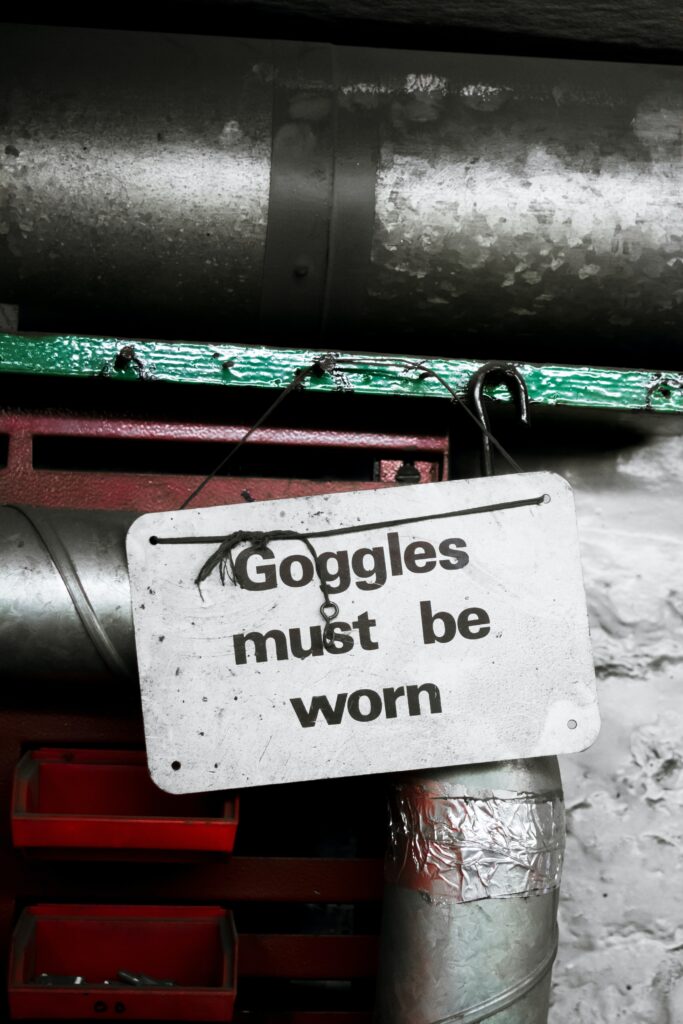When it comes to safety, it’s important to ensure that your portable tire compressor meets the necessary certifications. But with so many options out there, how do you know which ones to look for? In this article, we will explore the essential safety certifications that a portable tire compressor should have, providing you with the knowledge and confidence to make an informed decision. From fire safety to electrical standards, we’ve got you covered. So let’s dive in and discover what certifications should be on your checklist!

Understanding the Importance of Safety Certifications
The role of certifications in product safety
When it comes to product safety, certifications play a crucial role. They serve as an assurance for consumers that a product has met certain standards and regulations to ensure that it is safe to use. Safety certifications help reduce the risk of accidents, injuries, and potential harm that may arise from using a product.
Certifications are usually awarded by independent third-party organizations that conduct rigorous tests and evaluations of products to ensure their compliance with safety standards. These organizations have experts in various fields who thoroughly examine and validate a product’s design, construction, and performance. By obtaining a safety certification, manufacturers demonstrate their commitment to ensuring that their products meet the highest safety standards.
Why consumers should care about safety certifications
As a consumer, you should prioritize your safety and that of your loved ones. By purchasing products with safety certifications, you can have peace of mind knowing that they have undergone rigorous testing and evaluation to ensure their safety. Safety certifications serve as a seal of approval that the product has met the necessary requirements and is safe for use.
By choosing products with safety certifications, you are making an informed decision to protect yourself and your family from potential hazards and dangers. These certifications provide an added layer of protection and assurance that the product has been thoroughly assessed and meets the necessary safety standards.
Overview of Portable Tire Compressor
Definition and uses of portable tire compressors
A portable tire compressor, as the name suggests, is a compact and lightweight device designed to inflate vehicle tires. It is a handy tool to have in case of emergencies or routine tire maintenance. Portable tire compressors can be used for a variety of applications, including inflating car, bike, and motorcycle tires, as well as sports equipment like footballs and basketballs.
These compressors are typically powered by a 12-volt car battery or a built-in rechargeable battery. They are designed to be lightweight and easy to carry, making them convenient for roadside assistance or outdoor activities where access to a nearby gas station may be limited.
Potential hazards associated with portable tire compressors
While portable tire compressors are generally safe and reliable devices, there are potential hazards that users should be aware of. One of the primary risks is overinflating the tires, which can lead to tire blowouts and accidents. It is crucial to follow the recommended tire pressure guidelines provided by the manufacturer or vehicle manufacturer to prevent overinflation.
Another hazard is overheating, especially if the compressor is used continuously for an extended period. Overheating can cause damage to the compressor and potentially pose a fire risk. It is important to allow the compressor to cool down after prolonged use to avoid overheating.
Furthermore, the electrical components and connections of portable tire compressors can also pose a risk if they are not properly insulated or protected against water or moisture. It is essential to ensure that the compressor is used in dry conditions and that all electrical connections are secure to prevent electrical accidents or short circuits.

Certifications for Electrical Safety
UL certification: Definition, importance, and how it relates to portable tire compressors
UL certification, which stands for Underwriters Laboratories, is a widely recognized certification for electrical safety. UL is an independent organization that tests and certifies various products, including portable tire compressors, to ensure their compliance with strict safety standards.
When a portable tire compressor carries the UL certification mark, it means that it has undergone rigorous testing and evaluation for potential electrical hazards and has met the necessary safety requirements. This certification provides consumers with confidence that the product is safe to use and that it has been thoroughly evaluated by an independent third party.
The UL certification for portable tire compressors specifically focuses on electrical safety. It examines factors such as insulation, grounding, electrical connections, and protection against electrical risks. By obtaining the UL certification, manufacturers demonstrate their commitment to complying with the highest electrical safety standards and providing consumers with a safe product.
CE certification in European countries and its significance
CE certification is a mandatory certification for products sold in European countries. It indicates that a product meets the essential health, safety, and environmental requirements set by the European Union (EU). Portable tire compressors sold in European countries should carry the CE certification mark to ensure their compliance with EU regulations.
The CE certification is particularly important for portable tire compressors as it addresses various safety aspects, including electrical safety, mechanical safety, and compliance with specific European directives. This certification ensures that the product has undergone rigorous testing and evaluation to meet the necessary safety standards and regulations.
By obtaining the CE certification, manufacturers demonstrate that their products are safe to use and comply with the stringent requirements set by the EU. As a consumer, it is essential to look for the CE certification mark when purchasing a portable tire compressor in European countries to ensure its safety and compliance with regulations.
Pressure Equipment Directive (PED) Certification
Understanding the basics of PED certification
The Pressure Equipment Directive (PED) certification is a mandatory certification for pressure equipment sold within the European Economic Area (EEA). It sets the essential safety requirements for pressure equipment, including portable tire compressors, to ensure their safe design and operation.
The PED certification covers various aspects, such as design, materials, manufacturing processes, and compliance with harmonized European standards. It aims to prevent the risk of accidents, injuries, and damage that may arise from the use of pressure equipment.
Manufacturers seeking the PED certification for their portable tire compressors need to demonstrate compliance with specific technical requirements and undergo an assessment by a notified body. The notified body, authorized by the European Commission, evaluates the design, manufacturing processes, and quality assurance systems to ensure compliance with PED requirements.
The application and relevance of PED certification for portable tire compressors
Portable tire compressors fall under the category of pressure equipment, as they generate and regulate air pressure to inflate tires. As such, they are subject to the requirements set forth by the PED certification.
The PED certification ensures that portable tire compressors are designed and manufactured in a way that minimizes the risk of explosions, leaks, and other potential hazards associated with pressure equipment. It provides consumers with confidence that the product meets the necessary safety standards and has undergone thorough evaluation by an authorized body.
By obtaining the PED certification, manufacturers demonstrate their commitment to ensuring the safety and reliability of portable tire compressors. As a consumer, it is crucial to look for the PED certification mark when purchasing a portable tire compressor within the EEA to ensure its compliance with safety regulations.

Certification for Explosion Protection
ATEX certification: its details and why it matters
ATEX certification is specifically related to equipment used in potentially explosive atmospheres. The term “ATEX” stands for ATmosphères EXplosibles, and the certification ensures that the equipment meets safety requirements to prevent explosions in hazardous environments.
Portable tire compressors may require ATEX certification if they are intended for use in environments where flammable substances or gases may be present. This certification ensures that the compressor is designed and manufactured to minimize the risk of ignition, explosions, and other potential hazards in such environments.
ATEX certification involves an assessment by a notified body to ensure compliance with specific technical requirements and standards for explosion protection. It provides consumers with confidence that the portable tire compressor is safe to use in potentially explosive atmospheres and has met the necessary safety standards.
Potential risk of explosions in the context of portable tire compressors
While the risk of explosions in portable tire compressors is generally low, it is essential to consider potential risks associated with operating the compressor in hazardous environments. Portable tire compressors used in places with flammable substances or gases may pose a risk of ignition and explosion if not designed and manufactured to prevent such incidents.
Explosions can occur due to various factors, including sparks generated by electrical components, overheating, and mechanical failures. To minimize the risk of explosions, portable tire compressors intended for use in potentially explosive atmospheres should undergo rigorous testing and evaluation for explosion protection. ATEX certification provides assurance that the compressor has been thoroughly assessed to meet the necessary safety requirements.
As a consumer, it is important to consider the ATEX certification when purchasing a portable tire compressor for use in hazardous environments. This certification ensures that the product is designed and manufactured with the necessary measures to minimize the risk of explosions and ensure safety in such settings.
ISO Certifications
ISO 9001 for quality management systems
ISO 9001 is a widely recognized certification for quality management systems. It sets the standards for ensuring that organizations have effective quality management processes in place. While ISO 9001 is not specific to portable tire compressors, it is relevant in terms of ensuring the overall quality and reliability of the product.
Obtaining ISO 9001 certification demonstrates a manufacturer’s commitment to implementing robust processes for quality control, continuous improvement, and customer satisfaction. It ensures that the manufacturer follows a standardized approach to managing quality, including design, manufacturing, and customer support.
While ISO 9001 certification does not directly address safety aspects, it indirectly contributes to the overall reliability and functionality of the portable tire compressor. By choosing a product from a manufacturer with ISO 9001 certification, consumers can have confidence in the overall quality and performance of the compressor.
ISO 45001 for occupational health and safety management
ISO 45001 is a certification that focuses on occupational health and safety management. It sets the standards for implementing effective occupational health and safety practices within an organization. While not specific to portable tire compressors, ISO 45001 certification is relevant in terms of ensuring the safety of workers involved in the manufacturing process.
Obtaining ISO 45001 certification demonstrates a manufacturer’s commitment to providing a safe and healthy working environment for its employees. It ensures that the manufacturer has implemented proactive measures to identify and mitigate workplace hazards, promote worker well-being, and comply with applicable health and safety regulations.
While ISO 45001 certification may not have a direct impact on the safety of the portable tire compressor itself, it highlights the manufacturer’s dedication to creating a safe environment for their workers. By choosing a product from a manufacturer with ISO 45001 certification, consumers can support companies that prioritize the well-being and safety of their employees.
Environmental Protection Certifications
Eco design and green certifications
Eco design and green certifications focus on ensuring that products are designed and manufactured with environmental considerations in mind. While not directly related to the safety of portable tire compressors, these certifications emphasize sustainability, energy efficiency, and materials that are less harmful to the environment.
By choosing a portable tire compressor with eco design or green certifications, consumers can support manufacturers that prioritize environmental sustainability. These certifications promote the use of energy-efficient components, materials with minimal environmental impact, and production processes that minimize waste and pollution.
While eco design and green certifications may not directly impact the safety of the portable tire compressor, they align with holistic principles of responsible consumption and production. By opting for products with these certifications, consumers can contribute to a more sustainable future and support manufacturers that prioritize environmental stewardship.
Reduction of harmful emissions and compliance with environmental regulations
Portable tire compressors, like any other mechanical device, may produce emissions during operation. These emissions contribute to air pollution and can have adverse effects on human health and the environment. Manufacturers, therefore, have a responsibility to reduce harmful emissions and comply with environmental regulations.
Certifications related to emissions reduction and compliance with environmental regulations ensure that portable tire compressors meet applicable standards for air pollution control. These certifications involve testing and evaluation of the compressor’s emission levels and compliance with emission standards set by environmental authorities.
By choosing a portable tire compressor with certifications related to emissions reduction and compliance with environmental regulations, consumers can support manufacturers that prioritize environmental responsibility and contribute to reducing air pollution.
Checking for Authentic Certifications
Identifying fake or forged certifications
While safety certifications play a crucial role in identifying safe products, it is important to be vigilant as some certifications may be fake or forged. Fraudulent manufacturers or sellers may attempt to deceive consumers by displaying counterfeit certification marks.
To identify fake or forged certifications, consumers should carefully examine the certification marks displayed on the product or its packaging. Legitimate certification marks often have specific design elements, holograms, or unique identifiers that can help confirm their authenticity. Consumers can also cross-verify the certification with the issuing organization’s database or contact the organization directly for verification.
Best practices for verifying the authenticity of a certification
To ensure the authenticity of a certification, it is advisable to follow some best practices:
-
Research the issuing organization: Conduct a thorough research on the organization that issued the certification. Check their reputation, accreditation, and any reported cases of fraudulent certifications.
-
Examine the certification mark: Carefully examine the certification mark displayed on the product or packaging. Look for specific design elements, holograms, or unique identifiers that are typical of legitimate certification marks.
-
Cross-verify with the issuing organization: Use the issuing organization’s website or contact them directly to verify the certification. They should be able to provide information on the certified product and its validity.
-
Check the certification database: Some organizations maintain online databases where consumers can verify the authenticity of a certification. Use these databases to confirm the legitimacy of the certification.
By following these best practices, consumers can make informed decisions and ensure that the portable tire compressor they purchase has genuine and reliable certifications from reputable organizations.
In conclusion, safety certifications are of utmost importance when considering a portable tire compressor. These certifications provide assurance that the product has met rigorous safety standards and regulations, reducing the risk of accidents and injuries. Certifications for electrical safety, explosion protection, and environmental compliance play a significant role in ensuring the safety and reliability of portable tire compressors. By understanding the importance of these certifications and following best practices to verify their authenticity, consumers can make informed decisions and prioritize their safety when purchasing a portable tire compressor.
